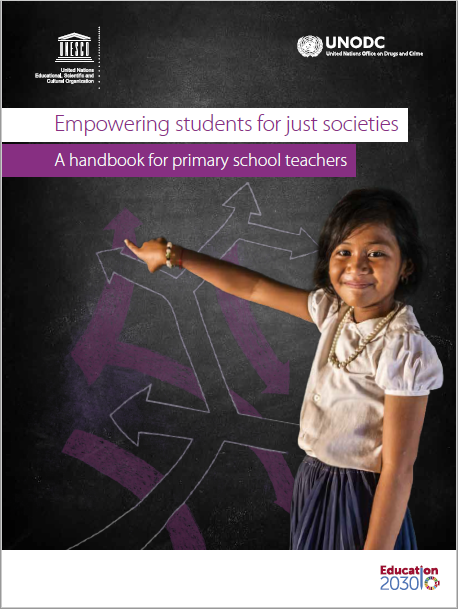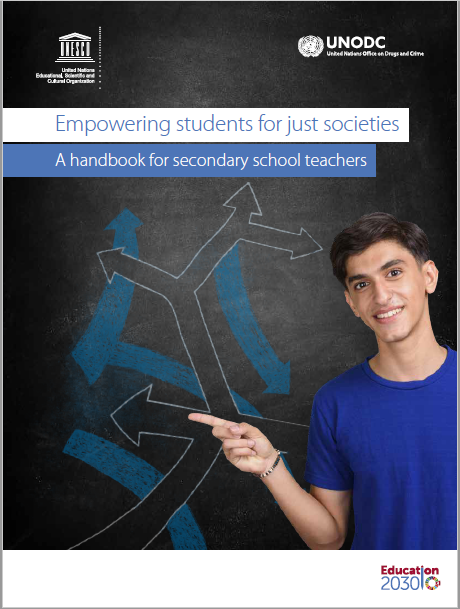Empowering Students for Just Societies:
Handbooks for Primary and Secondary School Teachers

Education has a key role to play in enabling students to understand their fundamental rights and to become champions for justice in society. With this aim in mind, UNODC and UNESCO jointly published two handbooks, one for primary and one for secondary schools, to help teachers empower their students. The handbooks assist teachers in developing students' critical thinking and empathy - skills which often do not feature prominently in school curricula.
The interactive lessons build students' awareness of their rights and break down misconceptions surrounding law and justice. Exercises, games and story-telling help bring social issues to life, prompting students to take a moral stand.
Some of the lessons in the handbooks are rooted in history and local culture, building students' understanding of how national laws evolve and societies learn to resolve conflict and live together. Other lessons equip students with the skills they need to navigate the digital age.
The handbooks' activities are rooted in Global Citizenship Education, an approach which can help foster young people's trust in public institutions, transforming them into agents of change who are able to constructively and responsibly engage in society.
Handbook for Secondary School Teachers
Publication for download:
Arabic, English, French, Portuguese, Spanish
The handbooks for teachers are among the key resources developed in the framework of the UNODC/UNESCO partnership Global Citizenship Education for the Rule of Law: Doing the right thing.

